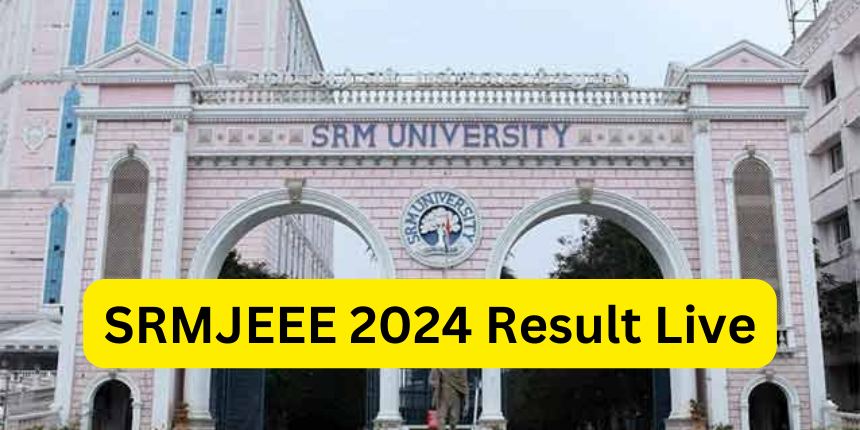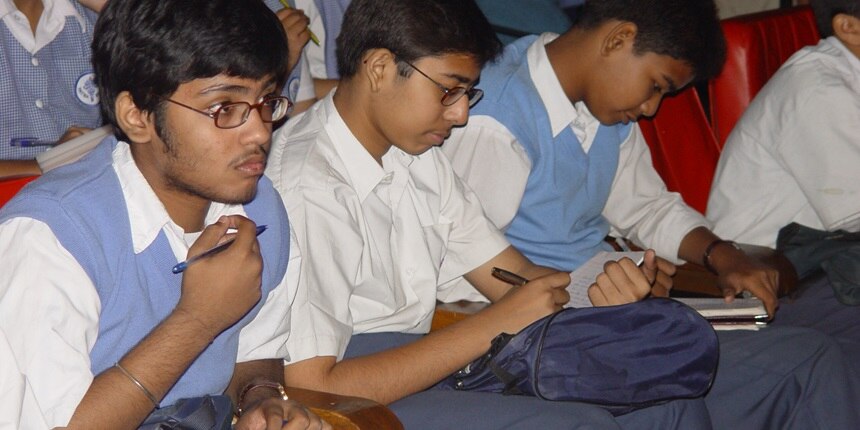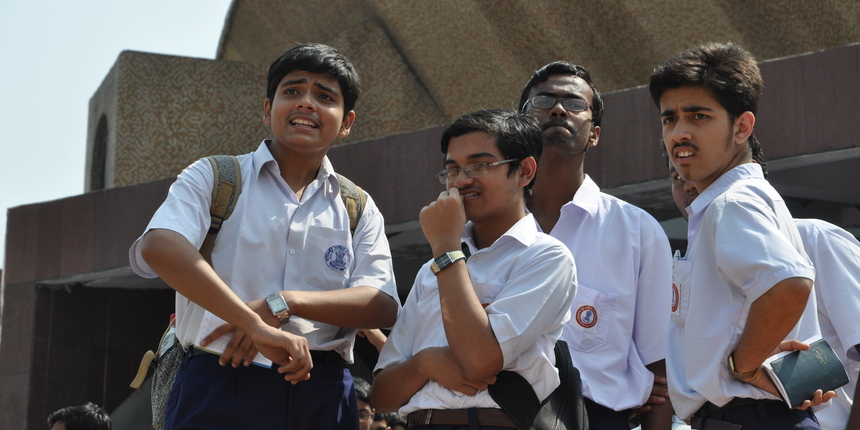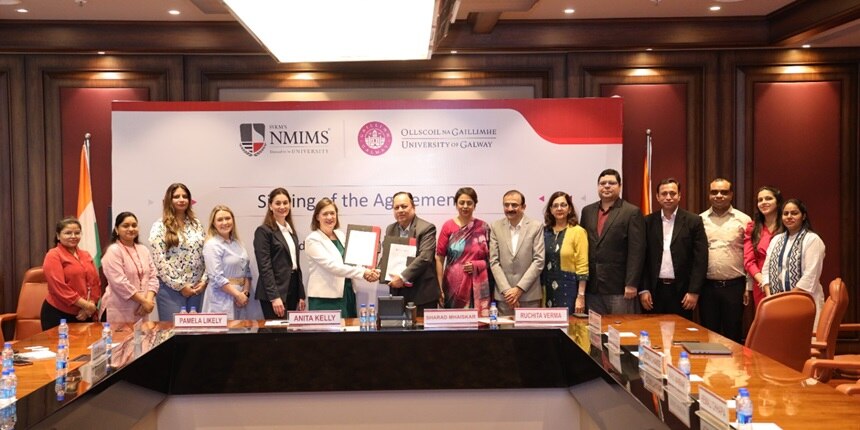‘I was treated like the biggest terrorist in the world’: GN Saibaba
Former DU professor, Saibaba said he was jailed, refused permission to meet his mother even though the ‘ world knew the case was fabricated’.
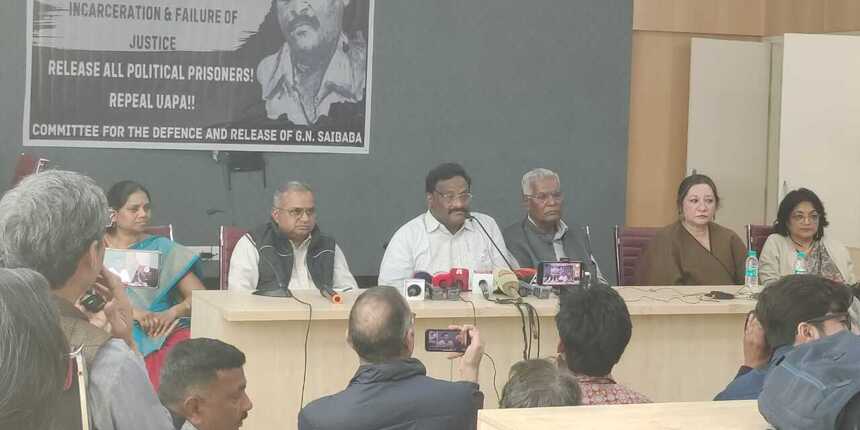 GN Saibaba said it was his mother's dream that he teach in DU. The associate professor had had his service terminated. (Image: Careers360)
GN Saibaba said it was his mother's dream that he teach in DU. The associate professor had had his service terminated. (Image: Careers360)Shradha Chettri | March 8, 2024 | 05:54 PM IST
NEW DELHI: Released from the prison after seven years, former Delhi University professor GN Saibaba shared the story of life inside the Anda cell and how the “false implication” destroyed his health. Stating that “justice delayed is justice denied”, Saibaba broke into tears as he spoke on how he was not allowed to meet his dying mother and could not perform her last rites.
Saibaba was speaking at a press meet organised by the Committee for the Defense and Release of Saibaba in the national capital on Friday.
At the time of his arrest in 2014 for alleged links with Maoists, Saibaba was an associate professor in the English department of DU’s Ram Lal Anand College. He was 90% disabled and a wheelchair user. He was lodged at the Nagpur Central Jail. The university eventually terminated Saibaba from service.
After spending 14 months in jail, Mumbai High Court had granted him bail for six months in July 2015 for his deteriorating health condition. He went back in December. In April 2016, the Supreme Court granted him bail which allowed him to seek treatment in Delhi but had to return again. He was released from the prison on Thursday after the Bombay High Court’s Nagpur bench acquitted him on March 5, 2024. He had been acquitted in 2023 but the Supreme Court had set that order aside.
GN Saibaba case a 'test' for judiciary
“I was in the same jail for 8.5 years, the anda cell. Perhaps the entire world knew the case was fabricated ten years before, but there was no relief. There was no relief even after the higher judiciary discharged me,” said Saibaba.
Along with Saibaba, five others who were charged under the Unlawful Activities (Prevention) Act (UAPA) for alleged links with Maoist and for staging war against the state were all acquitted.
“Like the mythological Sita, I had to go through agni pariksha twice. One, [when the] judgement of the highest judiciary acquitting me was not enough. But after years of struggle we were able to come out successfully. But at the end of the day justice delayed is justice denied,” said Saibaba.
He now believes that the only institution left to be relied on in a democracy, the judiciary, was also put to the test in this case.
“Fortunately I am out but the process of law is the biggest punishment. Today, after seven years that I am out, it feels like “Where am I?”. I am not able to understand. I still feel I am in a notorious anda cell. I am not able to come to terms with reality which is in front of me, after 24 hours of release. I am not able to adjust to the surroundings,” said Saibaba.
He also talked about how the lawyer who fought for him, Surendra Gadling, has also been implicated and is now languishing in jail.
Saibaba saw Pandu Narote, also accused of Maoist links, die. “Till the very end he was not taken to the hospital. Only when he started bleeding blood and prisoners created an uproar then he was taken to the hospital,” he said. Narote had contracted swine flu while imprisoned in 2022.
Failing health
Before he was sent to jail, Saibaba shared he had no ailment apart from his disability, caused by polio.
“But now every organ in my body is slowly failing. I have developed a heart condition. When I was arrested I was dragged by police and my left leg is still swollen. My left neck and hand have acute shooting pain. As I could not eat the food, I have developed acute pancreatitis and gall bladder stone. There is a cyst in my brain,” he said.
He narrated how he was denied medicines even sent by his wife, AS Vasantha. “It was only when I sat on a hunger strike for 10 days that I could get my medicine. It was only painkillers that they would give me. Most criminal gangsters get priority treatment, but I was treated like I was the biggest terrorist in the world,” he added.
Saibaba also highlighted how the prison lacked accessibility and how he had to be carried by two Adivasi boys to the washroom. “There is no ramp anywhere. I could not even fetch a glass of water,” he said.
'Mother's dream I teach in DU'
Saibaba’s mother passed away on August 1, 2020 without having met her son in her last days.
“My mother passed away while I was in prison,” he said, choking back tears. My mother brought me up with great care. She carried me to school. When she died, I was not allowed to see her . I was denied parole and denied [permission] to attend the funeral. Post funeral performing rites, I was denied. Who is denied these kinds of rights?” he asked.
It was my mother's dream that I teach at DU. I could never serve my mother in the last days. I was implicated and incarcerated – she wanted to see me. The state is there to serve the people and not crush humanity,” he added.
Follow us for the latest education news on colleges and universities, admission, courses, exams, research, education policies, study abroad and more..
To get in touch, write to us at news@careers360.com.
Next Story
]Allahabad University forced to join CUET UG, ‘did not get permission’ from education ministry for own exam
Allahabad University admission was based on CUET scores last year. It was delayed by months and left many seats vacant in colleges affiliated to the central university. CUET UG 2024 registration is open.
Atul Krishna